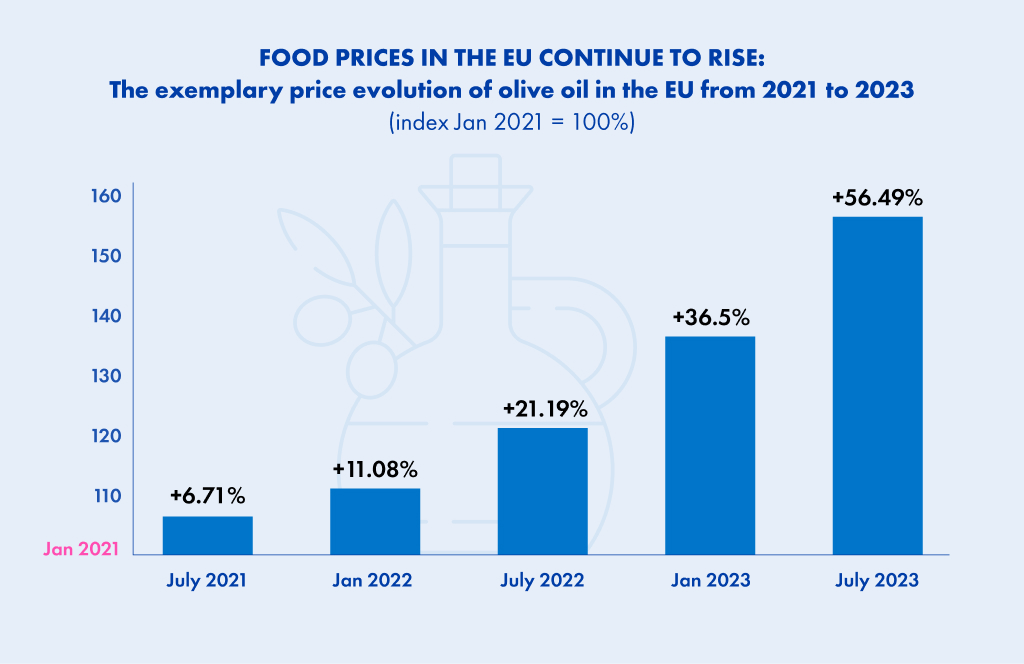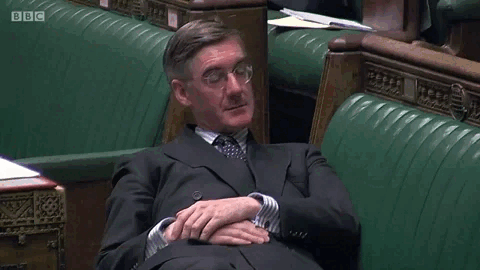Issue #145
Guten Morgen! As the Americans carved the pumpkin, the Germans prepared the Kürbissuppe. While candies got your teeth and the Jack o lantern took over your garden, we gathered some intelligence for your recovery. Welcome to this week’s Krautshell edition, where we make sure you always get those sweet or sometimes sour twists. A massive shout-out to Atticus Partners for sharing their UK insights. Without further ado, let’s get into the content: As Scholz tried to paint a positive picture of Germany for skilled immigrants, Liberals reconsider their position in the “Traffic Jam” coalition, while Germany, France, and Italy join forces to conquer the world of AI. In the UK, the Conservative Party faces declining support in the latest polling, and the COVID inquiry is in full swing as the system’s way of dealing with incompetent politicians. Last but not least, Charles Napier from Atticus Partners shares an insightful WOOM about how the State Opening of Parliament in the UK is like a grand show where the government tries to impress everyone with its to-do list for the year and how the Tories are in a real pickle as they need to win back public love from the Labour Party. Rishi Sunak, in the role of a magician, holds the fate of their act in his hands. Will he be able to pull a rabbit out of the budget hat? Let’s wait and watch! Anna Szilvia PICK OF THE POLITICAL WEEK: Chancellor and gang on Africa trip This week Chancellor Olaf Scholz, accompanied by a business and cultural delegation, visited Ghana and Nigeria. In talks with the Nigerian President, Bola Tinubu, the Ghanaian President, Nana Akufo-Addo, and the Chairman of the ECOWAS Commission, Omar Touray, he discussed the potential of West Africa and how to strengthen their already “good” relationship with Germany. In Nigeria, Scholz tried to paint a positive picture of Germany for skilled immigrants, as the Federal Republic is in desperate need for technically and medically skilled specialists. However, Germany stands rather low on the destination list of English-speaking Nigerians who rather choose the UK, US, Canada, or Australia. Ghana seems to be the Chancellor’s favorite destination, this being his seventh meeting with President Nana Akufo-Addo. Especially in terms of science and research, Scholz is keen to deepen cooperation and aims to continue creating legal immigration channels. Politically, Germany has increased efforts in West Africa stepping out of the French shadow in the region by returning the Benin bronzes and increasing official visits to the area. Olaf Scholz supporting an African seat in the G-20 group in September certainly had an impact too. Growing self-confidence of African states, courted from all sides, will nevertheless require more than fine words by the German Chancellor as stated for example in an interview with Karamba Diaby (SPD, Chairman of the West Africa Parliamentary Group of the German Parliament). In his views, Germany is following the right path, however, in the interest of both the African countries and Germany, Germany should still improve, among other things, the recruitment and immigration of skilled professionals (also in terms of recognition of qualifications, or visa applications). FURTHER INSIGHTS: Will the liberals leave the sinking ship? A grassroots initiative of the liberal FDP is calling on the federal executive committee, the four FDP federal ministers and the parliamentary group in the Bundestag to urgently reconsider staying in the traffic light coalition. The quite dramatically named “Freedom Wake-Up Call” letter comprises seven pages and the signatures of 26 state-level FDP politicians from Rhineland-Palatinate, Bavaria, Lower Saxony, Schleswig-Holstein, North Rhine-Westphalia, Hamburg, and Mecklenburg-Western Pomerania. The letter comes just under three weeks after the FDP flew out of the state parliament in Bavaria and barely made it back in Hesse. Thus, the signatories demand consequences from the recent election defeats, arguing that the party has been punished by voters for the federal government’s poor performance. The ”Wake-Up Call” goes as far as to warn of an imminent decline of the only liberal party in Germany if it remains in the reigning traffic light coalition and calls on the party executive to consider alternative coalitions partners. These FDP members emphasize the need for a more distinct FDP identity and “active liberalism”, focused on core economic values, also advocating for technology openness in energy policy. FDP leader Christian Lindner, while committed to the compromises and decisions of the current coalition, admitted that there are differing societal views between the Greens and the FDP. He also briefly referred to his (in)famous words from 2017 that “it is better not to govern than to govern wrongly” if reasonable compromises cannot be found, in an attempt to address internal criticism within the FDP, which appears necessary in light of such a critical open letter. THE BIG PICTURE: Europe’s AI Alliance Imagine Germany, France and Italy joining forces to form a super team to conquer the world of AI. It would be like Beethoven and Da Vinci creating a masterpiece together. An impressive thought, isn’t it? In fact, these countries have decided to join forces to keep up with the US and China in the global competition. But it’s not just about getting the best players on the team. Europe has also warned against excessive regulation, as if to say, “Let’s not overload the AI game with too many rules.” But enough with the sports analogies! Let’s take a look at the facts. The European Commission welcomed the recent agreement by G7 leaders on International Guiding Principles on Artificial Intelligence (AI) and a voluntary Code of Conduct for AI developers under the Hiroshima AI Process. These are intended to complement at international level the legally binding rules that the EU is currently finalizing under the EU AI Act. Both documents will be reviewed and updated as needed, including through inclusive multilateral consultations, to ensure that they remain fit for purpose and responsive to this rapidly evolving technology. President of the European Commission, Ursula von der Leyen, supports these international guiding principles and the voluntary code of conduct, which reflect EU values to promote trustworthy AI. “I call on AI developers to sign and implement this code of conduct as soon as possible,” says von der Leyen. When some of Europe’s brightest minds join forces to address the challenges and opportunities of AI, we can be sure that we are witnessing an impressive work of art – even if it is a digital one. Europe is taking on the challenge of AI without losing the fun of innovation. Let us be excited to see how this adventure will continue and what further creative twists it will take. This week all eyes in Westminster are on the Covid Inquiry into then Prime Minister Boris Johnson’s handling of the pandemic and the response to it from his administration. Key players from across the Covid years – ranging from lower-level civil servants to high profile political aides – are facing a grilling on governmental decisions related to the pandemic which resulted in the UK having, at its peak, one of the worst waves of Covid deaths in the world. A key learning from the Inquiry is the revelation that Boris Johnson thought Covid to be “nature’s way of dealing with old people”, as detailed in Chief Scientific Advisor Patrick Vallance’s journals. These comments, from Autumn 2020, align with other disclosures from the Inquiry, including that Johnson was obsessed with letting younger people get on with their lives during the pandemic and so was reluctant to impose another lockdown. Other takeaways thus far include former Chief Advisor to the Prime Minister, Dominic Cummings – who left his position amidst controversy in December 2020 – saying he, multiple times, called for Health Secretary Matt Hancock’s sacking due to his “incompetence”, amongst various other expletive-ridden messages about his colleagues. The UK’s latest voting intention polling shows the Conservatives as being 20% behind the Labour Party and as the Inquiry continues – set against a backdrop of Downing Street’s infamous Partygate scandal – it doesn’t look good for the Government. The Conservatives will likely embark on a damage-control campaign once the Inquiry concludes, but it could be too late following a week of explosive revelations. Source: ec.europa.eu Here are three appointments for next week that you should have on your radar: It’s a weird time of the year in the British Parliamentary schedule. Parliament is currently “prorogued” ahead of the State Opening of Parliament, a curious event where the government writes a speech for the monarch outlining their priorities for the coming year, which the King will then deliver from his shiny gold throne in the House of Lords surrounded by much pomp and circumstance. The government’s proposals will be one of the last rolls of the dice for a Tory government who have been in power for 13 years and will be facing the electorate in a year or less. Rishi Sunak and his government have a big mountain to climb to start to eat into Keir Starmer’s Labour Party’s 20-point lead in the polls and if what is announced doesn’t make the electorate notice that Sunak is bringing some fresh ideas and solutions to Britain’s ails, that polling gap will widen. That said, Starmer’s ‘ming vase’ strategy where he appears to be aiming to not rock the boat over the year and allow the Tory government to sink themselves, is risky. Sunak has five priorities for the year and although he certainly won’t meet them all, if inflation comes down, interest rates are cut and tax cuts promised later in 2024, against of backdrop of a less than inspirational Labour Party, Sunak could miraculously turn the ship around. But that’s a big ‘if’ and the question in commentators minds next week will be, when Black Rod has the House of Commons door slammed in his face (an ancient part of the State Opening signifying two fingers stuck up to the monarch by MPs) will it really be sounding the death knell of the Conversative Party’s time in government, or the greatest comeback since Liverpool beat AC Milan in the 2005 Champions League Final? (insert your own favourite comeback here)… Issue #145
And with that, we wish you a fantabulous start to your week.

FIRST, SOME SOLID INTEL:
AND WHAT’S UP IN GREAT BRITAIN?
TAKE A BREAK, GIVE YOUR EYES A REST:

LONG STORY SHORT:
OUTLOOK:
When?
What?
November 6th, 2023
Assessing the growing tech regulation rivalry between the EU, U.S., and China
November 7th, 2023
Europe 2030: A Digital Powerhouse
November 7th, 2023
Generative AI: opportunities, risks, and challenges
WHAT’S ON OUR MINDS:




